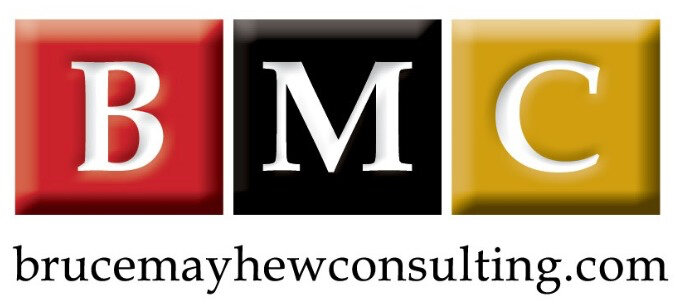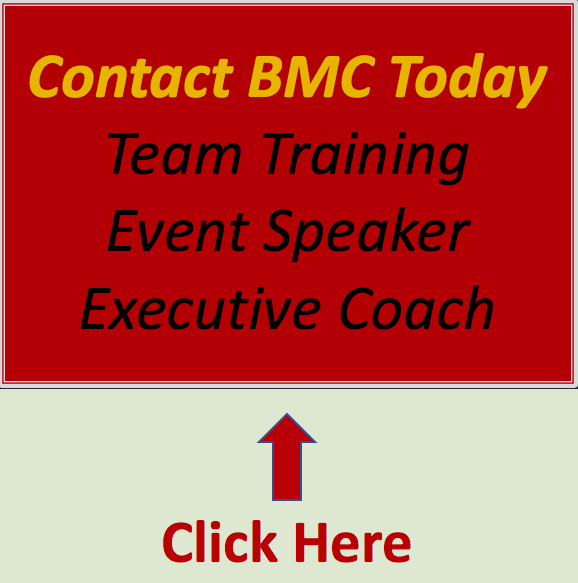Disagree With Respect At Work: Part I
/To disagree with respect at work is a sign we are part of a healthy business culture.
There's a big difference between disagreeing with respect versus having a heated, uncomfortable encounter. Disagreeing with respect means we can even deal with challenging situations without harming or threatening each other. Feeling safe, both physically and emotionally, means we can still be productive and move forward with confidence – together.
Wonderful things happen when we two or more people know they can disagree with respect. When we’re able to disagree with respect at work, it means our workspace also values creativity, growth, new ideas and is an evolving workspace.
We all deserve to share space where respectful disagreement is natural.
When we feel physically and emotionally safe we are able to apply our unbridled individuality to every challenge, opportunity, and goal for our shared benefit. It means we can explore possibilities while still respecting each other’s uniqueness. Alternatively, a disagreement that becomes disrespectful causes hurt feelings, lower productivity, lower creativity and morale, and burns through trust like a wildfire.
1. Approach Opportunities With Curiosity
When we approach a problem or disagreement in a positive way it becomes an opportunity to be creative, work as a team and build stronger relations as we also build trust, loyalty, and pride in our work.
One way to infuse positivity into our difficult conversations and workplace culture is to embrace Appreciative Inquiry. For example, when solving a problem using Appreciative Inquiry, we all look at what went well and what we want more of. While we don’t ignore serious flaws, overall we do however take the point of view of a glass half full. Instead of spending meetings dwelling on what went wrong and assigning blame, we spend the bulk of our time focused on how we can get more of what works, what we are good at and what our clients want. This also has the benefit of creating an uplifting, learning space focused on teamwork.
The old saying two heads is better than one is still relevant today; not because it is folklore but because it is true. Each of us is unique and there are things you know that I don’t. Two heads allow us to rely on and learn from each other, especially in a culture that embraces Appreciative Inquiry and respects curiosity.
2. Rules Of Engagement
For us to disagree with respect, we must intentionally and relentlessly commit to building a healthy foundation of trust where we care for our shared physical and emotional safety. Physical safety is self-explanatory. But when it comes to emotional safety, I think it’s important to quickly discuss how emotional safety can include many things like knowing that our individuality will be celebrated and never mocked or dismissed. Emotional safety also includes our creative ideas, our education, our experiences, our values, and anything else about us.
The following are rules of engagement that often support a healthy personal and professional culture:
Find and clearly state – in writing – a goal everyone agrees on. Only then should we discuss different options on how to reach that goal.
Values must be clearly defined, discussed, and agree upon… with everyone.
When you win it doesn’t mean I lose. The idea is to get on the same page on how we move forward.
We treat each other with respect. This means each of us realize others may have different boundaries and needs than we do.
We must all be open and encouraged to actively participate in difficult conversations.
We must learn about and strive to overcome biases like sexism, ageism and/or any other ‘ism’ both as individuals and as teams.
Everyone must listen to each other with the intention to hear what they feel, need and are fearful of.
We don’t speak over each other.
While we might speak passionately, we don’t holler or use upsetting language.
If I want to be open to the possibility of changing your mind, I also must be open to the possibility that you might change my mind.
If I change my mind it doesn’t need to mean I was wrong, it may just means I understand things differently now.
3. Changing Our Mind Is Often One of The Biggest Barriers
As we learn to disagree with respect, many of us discover that in our past whenever we entered difficult conversations we had a goal to change what other people understand, feel or believe, “If we could only make them see things our way we would have harmony.” That is an important realization, so I invite you to take time with that thought.
As we learn to disagree with respect, it’s important to recognize that if we expect others to change what they understand, feel or believe, we should also be open to changing what we understand, feel or believe. The truth is that respectful disagreement and important solutions almost always mean one or both of us has an opportunity to learn something… if we are paying attention.
For most people changing our mind is personal – scary. Many of us subconsciously worry that if we change our mind that it must mean we were wrong and our identity or reputation is compromised. You may know someone who has built their reputation as being the expert, the person who knows the most and/or who has the most experience. They can feel uncomfortable and uneasy with change and disagreement because they have worked hard to build their reputation as an expert and change threatens that reputation. In these cases, building their trust is an important step. Warning: it usually will take some time to build their trust and it may not always work.
If someone is assertive and/or lashes out, we need to pause and ask ourselves “Why are they acting this way?” and “Do they recognize they are lashing out?” They may not see their behaviour as inappropriate; many don’t. A first step for us would be to use our calm approach to help them see other ways to behave – that they don’t need to be assertive with us. This means that initially, we are not even dealing with the issue. Instead, our first goal is earning their trust.
One last thing on this point. Saying something like, “You are wrong” or “I have a better idea” will almost never go over well when trying to disagree with respect. Instead, a more inclusive approach may be, “I have a new idea and I’m hoping I can get your input and expertise. If you don’t mind, I’d like to walk you through from start to finish before I get your thoughts. Are you able to explore this new approach with me and is now a good time?”
Conclusion
Whatever we experience at work will also influence our behaviour, our relationships, and our enjoyment at home. This makes it even more important we recognize our responsibility to be part of a healthy business culture that embraces disagreeing with respect.
I believe that two things will happen when each of us learns to be respectful, open to listening and focused on shared goals:
First, our cool, curious behaviour will calm the ‘feelings’ and ‘tensions’ in the room and encourage others to listen.
Second, others will notice our steadiness and they will respect us for making the whole situation better… not making matters worse. We will be setting an example for others that disagreeing with respect is possible… and it feels good.
One Last Suggestion
If someone is disagreeing with you, don’t take it personal… because often, it isn’t personal. Often if someone is disagreeing with you it is simply because your goals are different and/or you have access to different information. Instead of taking it personally, listen to their ideas with curiosity. Look at the situation from the other persons perspective. What are their goals, needs and fears? Look for where there is alignment with your goals, needs and fears.
Remember, every coin has two sides. Same coin, but still, each side is different.
Thank you for spending time with me today and reading ‘How To Disagree With Respect At Work: Part I’. I hope you will enjoy Part II. I will post the link here when I launch it.
Bruce
Learn More About Bruce Mayhew
Toronto corporate trainer and executive coach Bruce Mayhew Consulting is in the people business… it just so happens that training and/or executive coaching is involved. Let us help you improve your productivity and employee engagement.
To learn more about how leadership training can to improve your skills call us at 416.617.0462.
Bruce Mayhew Consulting's most popular programs are Email Etiquette Training, Difficult Conversations, Generational Differences, Leadership Skills Training and Time Management Training
Related Workshops That Drive Business Success
Toronto based corporate trainer and executive coach Bruce Mayhew Consulting proudly offers leadership training and professional development.




